AS FEATURED ON


In Toronto, many small businesses can’t afford to wait for government relief
Article Source: www.nowtoronto.com
After building up a successful Leslieville yoga studio over the past six years, Rachelle Wintzen never imagined that she would be back where she started – running Chi Junky on her own.
But like so many small businesses in Toronto and around the world that have been forced to let staff go or shutter altogether due to COVID-19, Wintzen is not alone…
Four tricks the wealthy use to reduce taxes that ordinary Canadians can try, too
Article Source: www.financialpost.com
When it comes to saving on their taxes, the wealthiest Canadians sometimes seem to have all the asnwers. From incorporation to offshore tax shelters to trust funds, the opportunities to dodge the taxman appear to be endless.
While there are numerous (legal) ways to reduce your taxes, Dale Barrett, a Toronto tax lawyer at Barrett Tax Law said those that…
Dale Barrett Answers Your Pressing Tax Questions on GlobalNews.ca
Article Source: www.globalnews.ca
THE QUESTION: I don’t understand the implications of adding my adult child as a joint tenant on my home. I know that there can be capital gains tax implications but don’t really understand how it works.
Dale Barrett Answers Your Pressing Tax Questions on GlobalNews.ca
Article Source: www.globalnews.ca
THE QUESTION: I don’t understand the implications of adding my adult child as a joint tenant on my home. I know that there can be capital gains tax implications but don’t really understand how it works.
Nothing Is For Certain Except Death and Taxes
Article Source: www.seniorsfirstrealestate.com
When drawing up a will it is important to remember that your estate is not passed on to your heirs tax free. So what you think is generous, so does the government, and they want a piece of that generosity.
Legalpreneurs Spotlight: Dale Barrett – Centre for Legal Innovation
Article Source: www.cli.collaw.com
Former software developer Dale Barrett knows the promise and potential of technology, especially for lawyers. His first firm was entirely virtual. His next firm, Lawyers & Lattes, was based in a café to offer more accessible legal services to clients. Both upended the traditional model for a law firm…
Ombudsman Not Protecting Rights of Taxpayers – The Lawyer’s Daily
Article Source: www.linkedin.com
Although not an actual law as it is in the United States, the Taxpayer “Bill of Rights” sets out 16 rights, 8 of which are within the mandate of the Taxpayers’ Ombudsman’s office. Dale Barrett, Managing Partner of Barrett Tax Law, explains.
New Legal Cafe Offers Alternative to Law Office, owner says – The Lawyer’s Daily
Article Source: www.thelawyersdaily.ca
It’s the only law firm around where one can tuck into a barbecue chicken wrap and pumpkin spice latte while getting divorced, drafting a will or dealing with a tax dispute. This is what is being offered at Toronto’s Lawyers & Lattes Legal Café, a fledgling business that combines a variety of legal services with the breezy ambiance of a bistro-esque gathering spot. Terry Davidson reports.
New Toronto Coffee Shop Offers Lattes with a Side of Legal Advice – The Star
Article Source: www.thestar.com
“The lawyers here wear jeans. We’re not intimidating.”
Lawyer Dale Barrett wanted to open a new firm, where people could just walk in and feel at ease. “The question then became: What’s the best atmosphere for that, what’s the most comfortable? Where are people going to feel the most at home?” he told the Star in a recent interview. “And the idea came to put the law firm in a café.” Jacques Gallant reports.
Lattes and Legal Services Offered at Toronto Cafe – Global News
Article Source: www.globalnews.ca
Seeking legal advice can be a daunting task, but a Toronto-based firm is looking at making the experience a little sweeter.
With a piping hot cup of coffee, customers can also receive legal advice at Toronto cafe Lawyers and Lattes. The cafe is located on Eglinton Avenue West. It opened in October and was founded by lawyers Dale Barrett, Simone Barrett and Tara Steinberg. Erica Vella reports.
CRA Not Treating All Taxpayers Equally – CTV News Channel
Article Source: www.facebook.com
How you’re treated by the CRA has to do with where you live, who you get on the phone and who you are. Not all taxpayers are created equal. Dale Barrett is here to tell us more.
New Midtown Cafe Offers Legal Services with your Morning Coffee – Daily Hive
Article Source: www.dailyhive.com
Do you ever think to yourself, it’d be nice to be able to consult a lawyer about my grievances right at this exact moment, while getting your morning coffee? Your wish is Lawyers and Lattes‘ command. This new spot at Eglinton and Avenue is serving up coffee and legal services in a cute and comfortable cafe atmosphere. Kayla Gladysz reports.
Lawyers and Lattes is Toronto’s First Law Cafe – blogTO
Article Source: www.blogto.com
Looking for someone to help you with a rental agreement? A pre-nup, maybe? A divorce? Maybe you need to register a trademark, or write a legal will. Whatever the case, at some point in your fabulous adult life, you’re probably going to need a lawyer (or at the very least some legal advice). Lauren O’Neil reports.
Big banks vs CRA: The $2.8-billion tax battle that’s been decades in the making – Financial Post
Article Source: www.financialpost.com
Bay Street’s financial giants and the Canada Revenue Agency are headed to court over dividend rental arrangements — a practice some call ‘gaming the tax system’. Tucked into the recent financial statements of Canada’s biggest banks — past their mountains of assets and impressive profits — is a hint of tax trouble.
CRA issues? The Taxpayers’ Ombudsman might be able to help — for free – Global News
Article Source: www.globalnews.ca
By now, most Canadians have filed their taxes and are done dealing with the Canada Revenue Agency (CRA) until next year. But what if you belong to the unlucky minority who will have to battle with the taxman for the next several months?
5 things you need to do to win (or survive) a CRA tax audit – Global News
Article Source: www.globalnews.ca
So you’ve filed your taxes and received your notice of assessment, but now there’s another letter from the Canada Revenue Agency (CRA) in your mailbox with a request to see more of your paperwork. What do you do?
Watch Dale Barrett and Joseph Devaney discuss Net Worth Assessments – Video Tax News
Article Source: www.videotax.com
Watch Dale Barrett, from Barrett Tax Law, and Joseph Devaney, from Video Tax News, talking about what to do when you are going through Net Worth Assessment and how Barrett Tax Law can help.
When do I need to file an FOI request for accident reports? – The Globe and Mail
Article Source: www.theglobeandmail.com
In Ontario, you can get a copy of your collision report instantly, but it might not have the impact you need.
“It would have the date, time, location, who was involved, a list of any injuries and usually a diagram of the collision,” said Sergeant Carolle Dionne, Ontario Provincial Police spokeswoman. “It’s not an FOI [Freedom of Information] process unless you need more than that.”
CRA targets tax-avoiding merchants using Square payment system – The Globe and Mail
Article Source: www.theglobeandmail.com
Federal tax officials have launched a probe aimed at netting tax-evading retailers who use a popular point-of-sale system called Square.
Backed by an order issued by the Federal Court of Canada, the Canada Revenue Agency has told Square Canada Inc. that it must hand over sales transaction data for all Canadian sellers who took in more than $20,000 annually in the calendar years between 2012 and 2015 or during the period between January 1, 2016 and April 30, 2016. Square must also provide the CRA with address and bank-account details for those users, payroll data and other information.
Growing Your Niche Practice – The Canadian Bar Association
Article Source: www.cba.org
Dale Barrett has a clear vision for his tax law firm: he wants it to be a place that takes the fear of taxes out of clients. After articling at Tory’s, he started Barrett Tax Law in 2008. A former software engineer, he was drawn to tax law because of the need for affordable tax advisory services.
Five tips to help small business owners survive tax time – The Globe and Mail
Article Source: www.theglobeandmail.com
It’s no secret that small-business owners put in long hours. A typical day can include anything from hiring new employees to overseeing marketing campaigns and even cleaning out a rank staff room fridge.
With so many responsibilities gobbling up an entrepreneur’s time, no wonder Statistics Canada data shows that more than 40 per cent of owners work 50 or more hours a week – while just 6 per cent of employees work that amount.
Collecting HST and GST is a big pain for small business – The Globe and Mail
Article Source: www.theglobeandmail.com
For most small-business owners it’s probably safe to say that collecting taxes on behalf of the government can be a nuisance.
“These are in the category that are called ‘trust monies,’” said Dale Barrett, of Toronto-based Barrett Tax Law, “and the Canada Revenue Agency goes crazy over trust monies.”
What’s more, the legislation related to the harmonized sales tax and the goods and services tax is complex, and it’s easy to make costly mistakes. Here are the seven most common HST/GST errors.
Ten common mistakes that make tax time worse – The Globe and Mail
Article Source: www.theglobeandmail.com
Tax time is a headache for most people, but if you are running a small business, it can be even more so. An error, even an honest one, has the potential to raise the ire of Canada Revenue Agency auditors. That could cost entrepreneurs time, stress and money while they would rather be concentrating on running their businesses.
Here are 10 common mistakes that small business owners tend to make.
Failing to keep an accurate log of a vehicle: “It’s one of the areas the CRA loves to audit,” said Toronto-based tax lawyer Dale Barrett, author of Tax Survival for Canadians: Stand Up to the CRA.
Free (or nearly so) resources for small-business tax season – The Globe and Mail
Article Source: www.theglobeandmail.com
Free is always good, especially when it comes to professional advice during tax season. A variety of government bodies, associations and websites offer help gratis or for minimal cost, just when your business needs it most. Here are some of the resources available to help you get it right.
Canadian Tax Foundation: This non-profit research organization analyzes personal, corporate and international tax and government-finance matters. It publishes a broad selection of analysis and commentary on current issues in Canadian and international case law, tax policy and finance.
Taxman wants Royal Bank’s Panama Papers client list – The Star
Article Source: www.thestar.com
The Royal Bank of Canada should be ordered to reveal the identities of clients with “relationships or connections” to the Panamanian law firm at the centre of a global offshore tax haven scandal, according to a federal court application by the Minister of National Revenue.
The striking request filed in court on May 4 seeks an order under the Income Tax Act compelling RBC, the country’s largest bank, to provide the sensitive client information in response to revelations published by the Toronto Star and the CBC/Radio-Canada last month in the Panama Papers investigation.
Earn extra income this year through Uber or Airbnb? Remember to report it
Article Source: www.680news.com
OTTAWA – People who drove for a ride-hailing service like Uber or rented out their homes through Airbnb last year earned extra income, and that needs to be reported come tax time.
“When you decide to put up the post for a room in your house or your cottage or in fact if you happen to sign up with Uber and be a driver, you’ve got I think an approach to earn income or money,” said Paul Woolford, a tax partner at KPMG.
Uber drivers often unaware of tax obligations
Article Source: www.cbc.ca
It’s been said there’s no such thing as a free ride and, at tax time, that’s as true for Uber drivers as it is for their passengers.
The controversial app-based ride-hailing service, and its competitor Lyft, are a source of income for tens of thousands of Canadians. But some of them are operating under some misconceptions, tax experts say. The most common misconception is that their earnings are tax-free.
Want to avoid an audit? Why major changes in your tax return attract CRA attention – Global News
Article Source: www.globalnews.ca
OTTAWA – Even if people have done nothing wrong, there is little that can compare with the dread that an audit by the Canada Revenue Agency can cause.
Tax experts say big changes in a return or claims that seem unusual for someone with a particular job or living in a certain neighborhood can increase the chances of an audit.
‘Lightning bolts out of the sky’ – Canadian Lawyer
Article Source: www.canadianlawyerma.com
When Rob Kreklewetz started his legal career as a tax and trade lawyer in the 1980s, tax law was a staid, even gentlemanly field of practice involving mostly matters of income tax and other direct taxes.
Lawyers “were brought in at the early stage, usually by the client’s accountant, before a notice of objection was filed,” he tells Canadian Lawyer from his office at Millar Kreklewetz LLP in Toronto. “We had 90 days to file (and) delay collection until the amount of collection was determined. It was all very orderly.”
How to handle tax audits — and how to avoid them in the first place
Article Source: www.financialpost.com
Being audited is one of the scariest experiences that a taxpayer can face, says Dale Barrett, a Toronto-based tax lawyer and author of Tax Survival for Canadians: Stand Up to the CRA.
“People are freaked out by the process. People don’t know what they should say to an auditor. Often times people don’t know what rights they have during an audit.”
Police investigation of DSC a matter of life or death, says former member – Windsor Star
Article Source: www.windsorstar.com
About two weeks ago, former DSC Lifestyle member Brian Barker spent the better part of a day at the RCMP’s Windsor detachment, poring over the documents that show how much of his money has disappeared.
Barker said the officers listened to his story and the story of a fellow investor he brought with him. They made notes and thanked them for their time.







